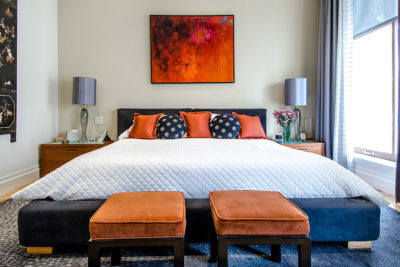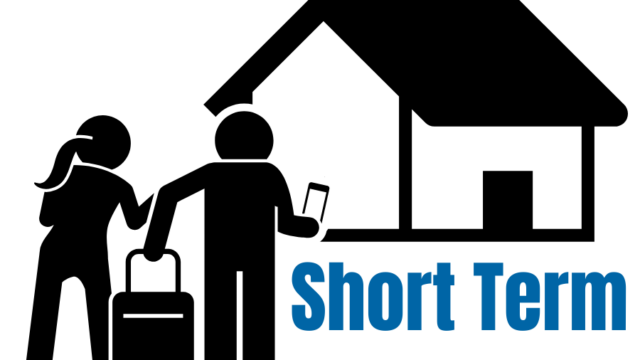At 6:00 p.m. on Monday Aug. 1, the Salida City Council work session draws closer to acting on a single topic, the occupational lodging tax on short term rentals (STRs).
Following a July 18 City Council discussion about options for increasing revenues to fund workforce housing measures by the City of Salida, the City Council requested an analysis of what revenues might be generated by increasing the Occupational Lodging Tax (OLT) just on Short-Term Rentals (STRs).

Image courtesy of the City of Salida.
Staff has now come back with multiple scenarios involving both the Occupational Lodging Tax (OLT) as well as a proposal for a larger annual fee for STR owners. At this session, the council will consider one or more options, most of which will require a question to be placed on the November 8, 2022 consolidated general election ballot.
It should be noted that the city does not seek to increase the OLT on hotels; only the OLT on STRs, citing their sharp growth spurt and incremental guest counts as the most impactful on city services and neighborhoods.
As with most financial issues, timing (and voter tolerance) is everything.
The easiest option for the City of Salida would be to raise the current OLT from the existing $3.66/night to the $4.82/night maximum approved by voters years ago. This could be done quickly and without a ballot question, but would only raise an estimated $124,000 in additional revenue. The $1.16 increase would likely just be passed on to STR guests.
County Already Seems Likely To Consider a 3.5 Mill Property Tax in November
As previously reported by AVV, the Chaffee Housing Authority (CHA) has made the rounds of the City of Salida, the Town of Buena Vista and Chaffee County, seeking long-term funding for the programs that the CHA wants to continue (and expand), providing more help to workforce housing across Chaffee County. A ballot question appears likely.
While STRs are currently considered by the County Assessor as “residential” and their property taxes are assessed at roughly one-third of what commercial property owners (like hotels) pay, a burden of some $120/year is possible for average residential properties, if the ballot issue succeeds.
The Scenarios And The Numbers
The staff analysis in the work session packet details the revenue for each scenario and also suggests how impactful each might be, ranging from not so much, to potentially meaningful.
- One idea would be to increase the maximum OLT from $3.66 to $10 per night, but perhaps to do so gradually. A best-case estimate from staff shows this might bring in an additional $300,000 annually that could be earmarked for workforce housing efforts.
- The data further suggests multiple ways that additional revenue could be used to help offset the cost of housing within the city limits. Yet some of these might overlap what the CHA hopes to do in terms of rental subsidies and down payment assistance throughout the county. Even with a potential $300,000 in hand, that sum of money may not go very far.
- A third idea (with major political optics) is the proposal to levy an annual fee on STR owners, over and above the current $270 annual license fee. While public sentiment has focused on the top-end of $5,000 per year per STR license, the study shows data assuming fees ranging everywhere from $500 to $5,000 and those resulting in added revenues from $50,000 to $1,034,000 annually.
If the city were to zero in on making the most lasting impact on the largest number of residents and target permanent “Deed Restriction Buy-Downs for New Homes”, one hypothetical mixed-use case, resulting from a $5,000 annual license fee could look like this in the first year, for the two types of units most in demand:
Data assumes covering current gaps between median sales prices and a current 120% AMI.
Higher AMIs could allow for more units or a different mix of unit types.
(4) Studios @$129,000 gap = $516,000
(3) 1-BR’s @$180,000 gap = $540,000
Revenue needed: $1.056,000
With this mix, seven units could be made significantly more affordable for at least ten workers and provide immediate relief; perhaps enough to make a difference in just the first year, with additional units every year thereafter.

Courtesy photo: A short term rental managed by Effortless Rental Group
STR Owners
To be fair, STR owners have made a large investment already in their rentals; they pay hefty fees for property management and take their share of risks. They deserve to have a return on their investment, higher than leaving it in the safe confines of a money market account.
STR owners also cite the economic benefit that their guests bring to city sales taxes for food and retail sales, both of which the city budget relies on heavily.
Few STR owners are local homeowners or retirees renting out a spare bedroom; most are out-of-state owners who saw and seized an opportunity and who now may cry foul that the rules of the game are changing. Many residents say it would seem that there needs to be a middle ground and a recognition by all that investing in the fabric of the community and retaining workers who serve guests can keep that investment thriving, making it a win-win-win.
The questions for STR owners: even at $5,000 per year as a new cost of doing business, might at least half (if not more) of this be passed on to guests, in the form of a separate line item on their bill, earmarked for workforce housing? Would this investment in the community partially offset the impact that these (welcome) guests have on city services and the workers needed to care for them while they visit?
Given average nightly rates in Salida, and assuming a 50 percent STR occupancy rate overall, “covering” $5,000 appears to the causal onlooker to cause minimal hardship for owners.
Other Unintended Consequences
Finally, it should also be noted the ripple effect that STRs are already having on a large number of local residents who have long relied on individual outside help with their own housecleaning. It seems this summer that the majority of workers who use to regularly clean private homes have now abandoned their clients in favor of the much more lucrative market of servicing STRs and their property management firms. A fact that may seem trivial perhaps in the larger scheme of life in Salida, but noticeable nonetheless for some retirees who need the help.
In order for Salida ballot questions to be accepted for the November election, they must at least be heard at first reading by city council at their next (August 16, 2022) meeting. The goal is to craft a ballot issue that balances public and private interests, has general support, from both residents and STR owners alike — and passes.
To listen in on the deliberations, use the link below then contact your City Council member to engage in the process.
Please register for the City Council Work Session
Featured image: Image Courtesy YourHub/Denver Post







Recent Comments